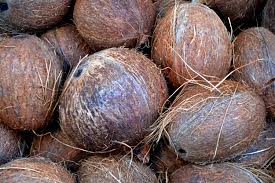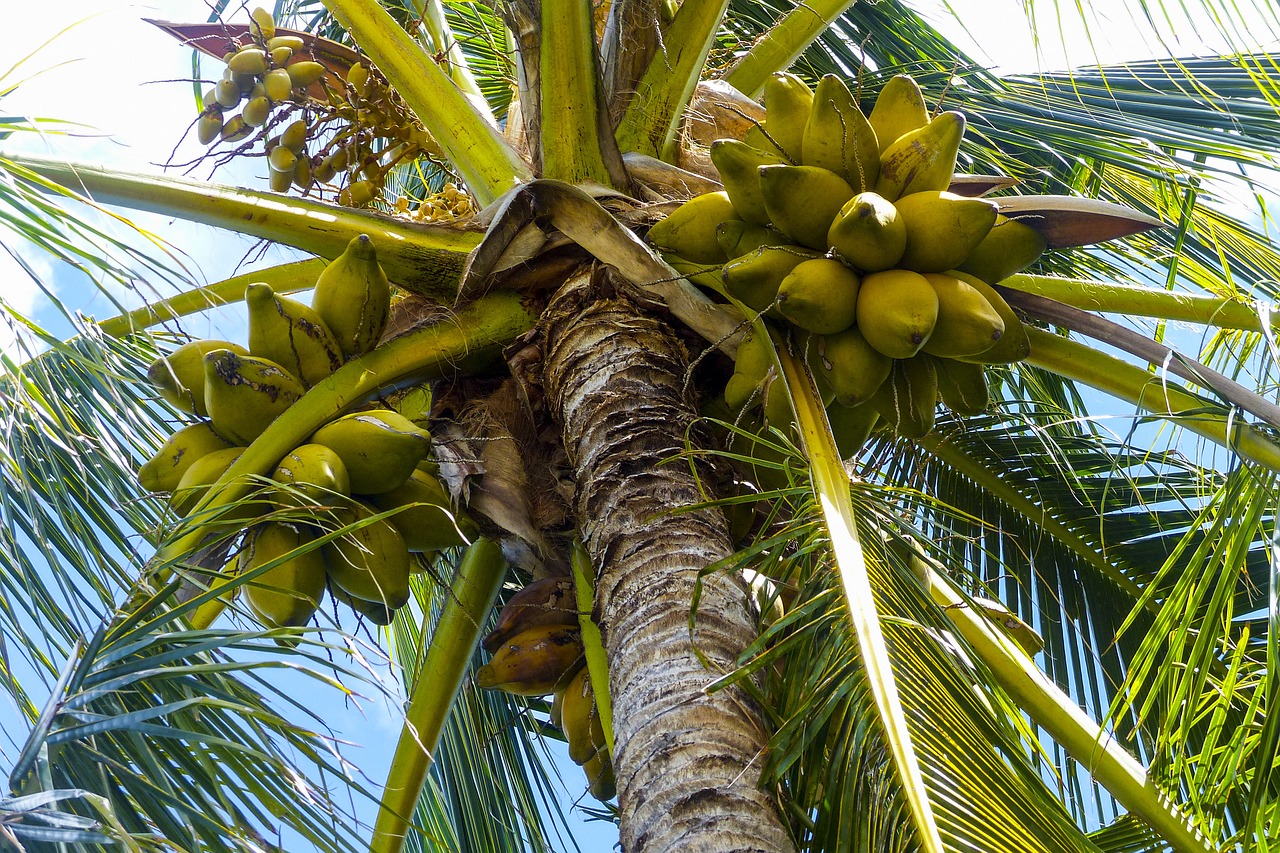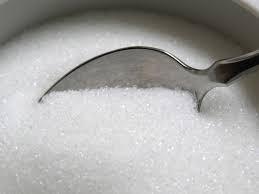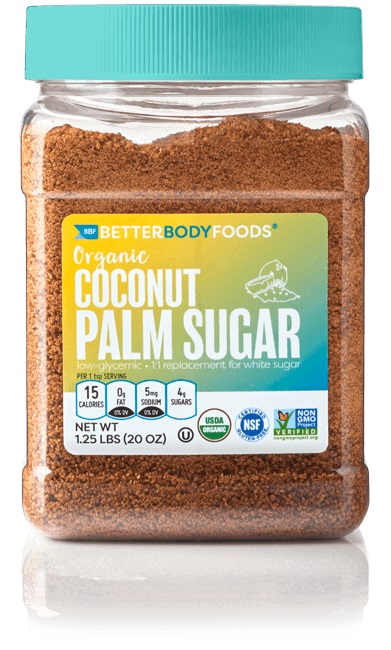What about Coconut Sugar?

Last month I wrote about stevia, and this month I am going to write about yet another alternative sweetener: coconut sugar! How many of you have tasted coconut sugar? How many of you have used coconut sugar in your cooking and/or baking? Coconut sugar sounds like a better alternative to white table sugar, but is it?
Coconut sugar is sometimes called different things like coconut palm sugar or coconut crystals, but it’s the same thing. In liquid form, coconut sugar is known as coconut sap or coconut nectar. It is not, however, the same thing as just “palm sugar”. Palm sugar comes from other types of palm trees like the Date Palm or the Palmyra Palm.

Coconut sugar occurs when the coconut tree sap is boiled and then dehydrated into crystals. The crystals are brown in color and the taste is similar to brown sugar. Because coconut sugar comes from the sap of a coconut tree, it does not contain any of the actual coconut fruit. Thus, most of the health benefits that we receive from a coconut are not contained in coconut sugar.
Calorically speaking, coconut sugar and white sugar have the same number of calories. One teaspoon of coconut sugar has 15 calories, one teaspoon of white sugar has 15 calories. Coconut sugar does contain traces of some vitamins and minerals that white sugar does not. For example, small amounts of zinc, iron, calcium, and potassium may be found in coconut sugar. While this would make it slightly healthier than white sugar, the amounts of these minerals are small and not very significant.

One of the biggest “selling points” of coconut sugar is that it is lower on the glycemic index than white sugar. This is true; coconut sugar has a glycemic index score of 35, while white sugar has a glycemic index score of 60, but there is more you need to consider. Coconut sugar is approximately 70-79% sucrose. Half of sucrose is fructose. Fructose is lower on the glycemic index because your body doesn’t use it immediately for energy and thus, it doesn’t affect blood sugar levels. Instead, it is stored and then broken down by the liver. The liver is over-worked by breaking down fructose; so much so that is isn’t able to perform its other functions properly. Furthermore, fructose is addictive, makes us eat more, and forces the body to store more fat. Coconut sugar and white sugar have close to the same amount of fructose.

Hopefully, I have shown you that there isn’t a lot of benefit to using coconut sugar over plain old, white sugar. Sugar is still sugar! Another thing to consider is that coconut sugar is much more expensive than white sugar. On average, white sugar is about 7 cents per ounce where as coconut sugar is about 22 cents per ounce. Does it seem worth it to you?
- https://paleoflourish.com/coconut-sugar-vs-coconut-palm-sugar
- https://www.drweil.com/diet-nutrition/nutrition/is-coconut-sugar-a-healthier-sweetener/
- https://en.wikipedia.org/wiki/Palm_sugar
- https://www.healthline.com/nutrition/coconut-sugar#section4
- https://blog.bulletproof.com/5-not-so-sweet-facts-about-coconut-sugar/
- https://iquitsugar.com/why-we-focus-on-fructose-not-sugar/
 Cristina Duke
Cristina Duke
Monthly Newsletter Contributor since 2014
Email the author! cristina@dvo.com
